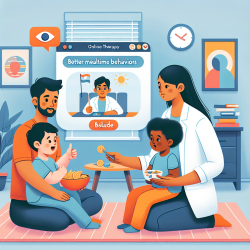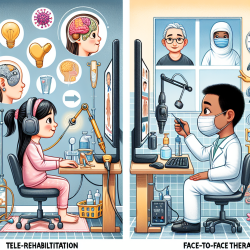Children with Autism Spectrum Disorder (ASD) often exhibit problematic mealtime behaviors that can be challenging for both parents and educators. As practitioners dedicated to creating great outcomes for children, it's crucial to base our interventions on solid, data-driven research. One such valuable resource is the study on the "Structural validity of the mealtime behaviour questionnaire for children with autism spectrum disorder in Japan."
The study aimed to develop and validate the ASD-Mealtime Behaviour Questionnaire (ASD-MBQ), a tool designed to capture problematic mealtime behaviors in children with ASD aged 3–18 years. The results of this study can significantly enhance our understanding and intervention strategies for these children.
Key Findings of the Study
The study's confirmatory factor analysis demonstrated that the ASD-MBQ has a robust five-factor structure:
- Selective Eating
- Clumsiness/Manners
- Interest in/Concentration on Eating
- Oral-Motor Function
- Overeating
These factors provide a comprehensive framework for evaluating mealtime behaviors and tailoring interventions accordingly.
Practical Applications for Practitioners
Based on the findings, here are some practical ways to improve your skills and create better outcomes for children with ASD:
- Utilize the ASD-MBQ for Assessments:
- Incorporate the ASD-MBQ into your assessment protocols to get a detailed understanding of each child's mealtime behaviors.
- Use the five-factor structure to identify specific areas that need intervention.
- Develop Targeted Interventions:
- Design interventions that address specific problematic behaviors identified by the ASD-MBQ.
- For example, if a child exhibits selective eating, focus on gradual exposure to new foods and sensory integration techniques.
- Collaborate with Caregivers and Educators:
- Share the ASD-MBQ results with caregivers and educators to ensure a consistent approach across home and school environments.
- Provide training sessions to help them understand and manage mealtime behaviors effectively.
- Monitor Progress and Adjust Interventions:
- Regularly reassess the child using the ASD-MBQ to monitor progress.
- Adjust interventions based on the reassessment to ensure they remain effective and relevant.
Encouraging Further Research
While the ASD-MBQ is a valuable tool, the study also highlighted the need for further research. Areas for future investigation include:
- Determining cut-off scores by age.
- Examining inter-rater reliability.
- Exploring the impact of intellectual development on mealtime behaviors.
By staying informed about ongoing research and contributing to it, practitioners can continue to refine their approaches and improve outcomes for children with ASD.
To read the original research paper, please follow this link: Structural validity of the mealtime behaviour questionnaire for children with autism spectrum disorder in Japan.










